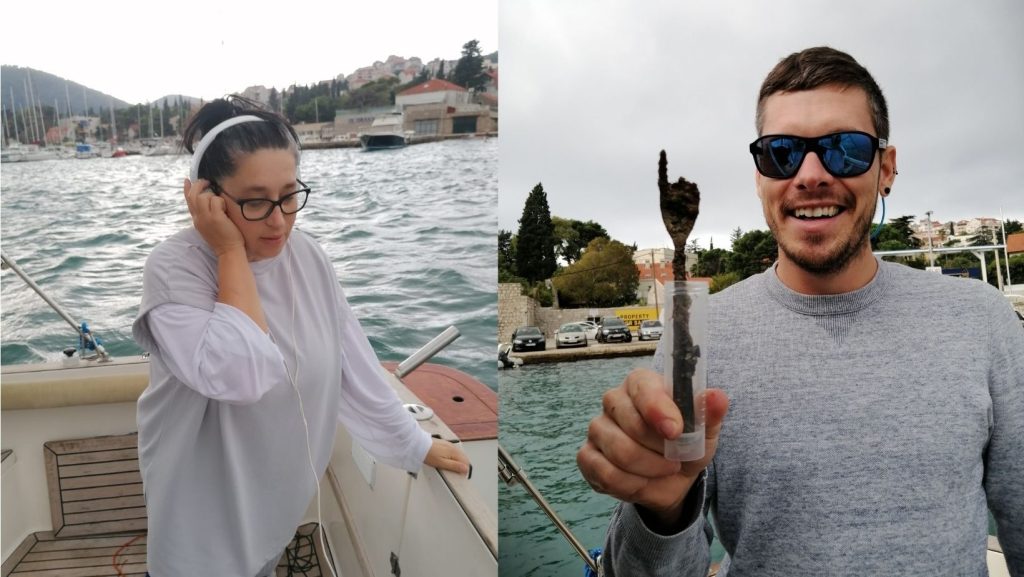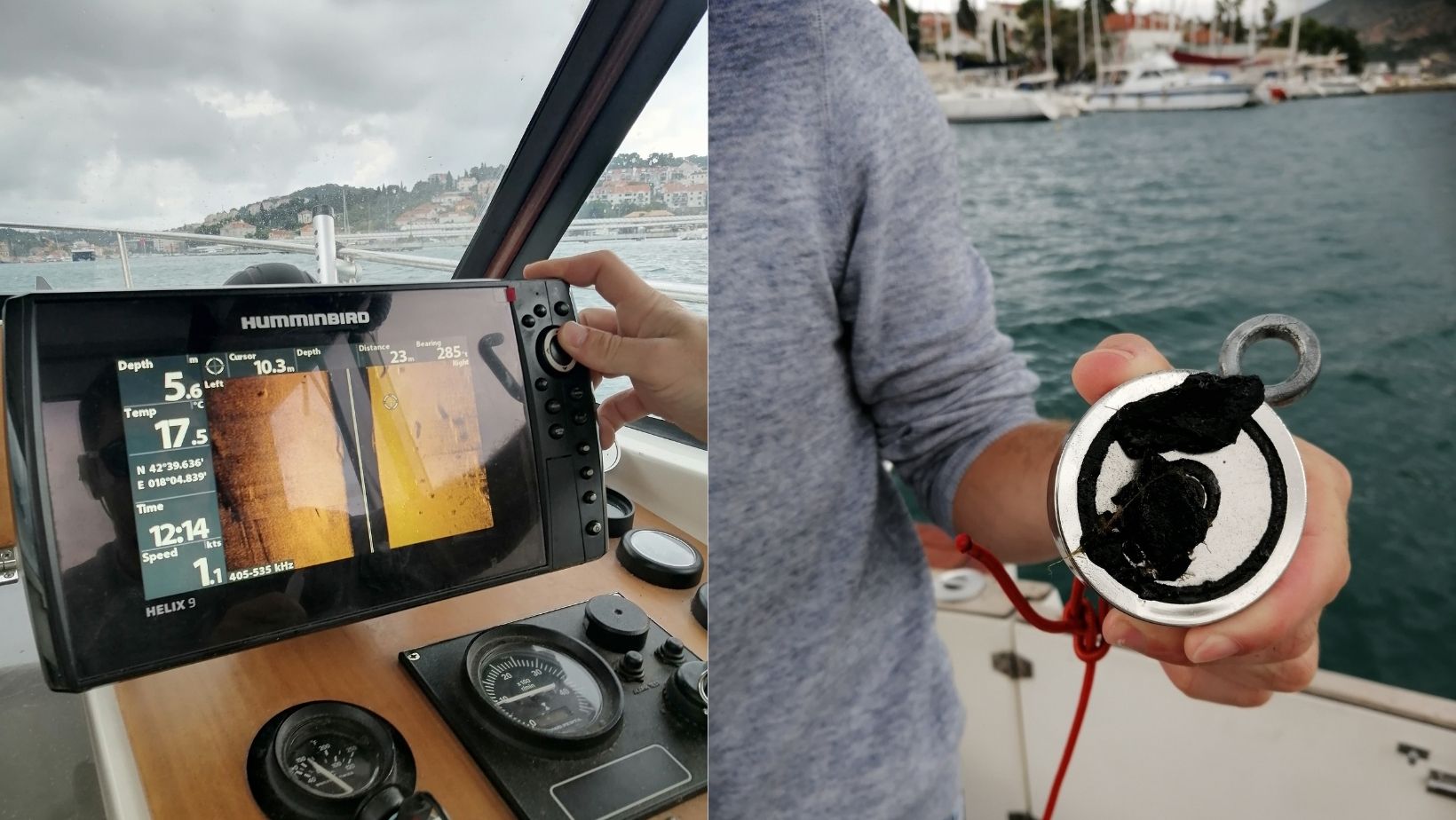[MARJAN ŽITNIK]
For the STARTS residency on the Zero Pollution Adriatic we are focused on both visible and invisible pollutants of the Adriatic Sea. One of the premises that we set up was to completely rethink pollution in terms of defining what the actual pollution is and where does it come from.
Our first field trip was a site inspection inside the biggest, and thus one of the most polluted harbours in Dubrovnik – Gruž. We went to gather several sea water samples and used “super magnet” experimentally to get some solid samples (hoping to be something that fell off the commercial boat, possibly several years ago). We jumped into a metal fork, which was quite interesting for the lab testing.
But the thing that we accidentally spotted was the large amount of dust that is magnetised and remains stuck on the magnet. Port Gruž seabed is literally covered with unknown, iron composed dust. That opened many questions for us and for the topic. How did that happen? Could it be the old Radeljević factory that has always been a taboo topic in Dubrovnik? Could it be the old Carbone graphite products factory called TUP (Tvornica Ugljenografitnih Proizvoda)? I hope we’ll find out through the research but one is for sure – pollution comes in different sizes, shapes and forms. It’s a much more complex system, a set of malicious events in time and space, yet to be predicted and prevented. We named it challenge.

[ROBERTINA ŠEBJANIČ]
One of the first field trips was a drive around the port of Gruž, Dubrovnik, where we collected mud and water samples. The Zero Pollution Adriatic challenge is a good opportunity for me to continue the research of how the human imprint is present at the Adriatic sea.. I think that the issue of liquid waste, as one of the least visible pollutants around touristic coastal areas, needs to be thoroughly explored and definitely poses a big challenge.
I try to work over longer periods of time on the issues connected to the ecology of aquatic habitats from biological, chemical and geopolitical perspectives. Ecology is a complex topic that involves many parameters. There are different contexts to observe and research and I think it’s also important to make invisible – visible.
The Zero Pollution Adriatic project is focused more on the south Adriatic, it’s all connected due to fluidity and circulation of water. Everything flows. The same trash floating around in Dubrovnik will eventually end up on the coast of Slovenia due to the water circulation and vice-versa. With this project Marjan and I (in collaboration with the team of UR institute and local experts) want to develop a working frame for people involved in tourism to think differently about the environment. We also want to propose strategies that would encourage technical and social innovation in the area.

